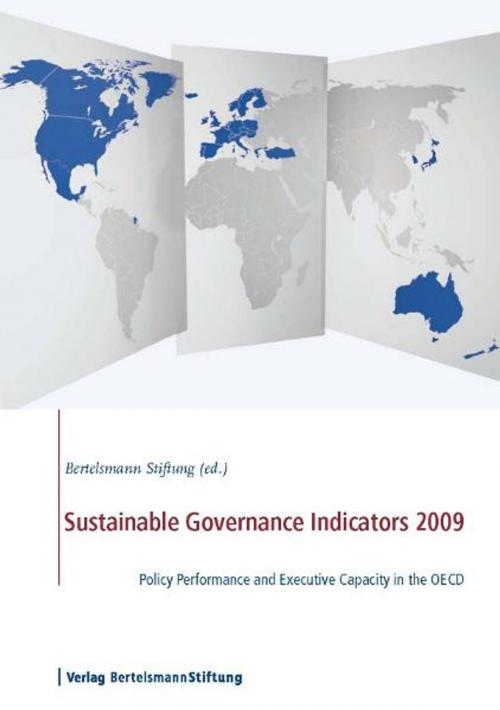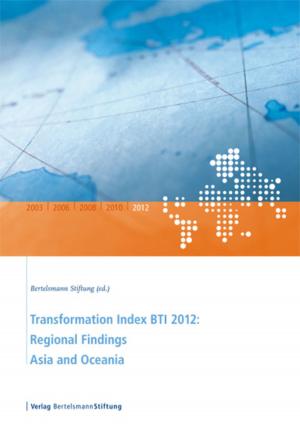Sustainable Governance Indicators 2009
Policy Performance and Executive Capacity in the OECD
Nonfiction, Social & Cultural Studies, Political Science| Author: | ISBN: | 9783867932561 | |
| Publisher: | Verlag Bertelsmann Stiftung | Publication: | July 30, 2010 |
| Imprint: | Language: | English |
| Author: | |
| ISBN: | 9783867932561 |
| Publisher: | Verlag Bertelsmann Stiftung |
| Publication: | July 30, 2010 |
| Imprint: | |
| Language: | English |
Despite the limiting effects of growing interdependencies in a globalized world, national governments still have a considerably broad scope of action when it comes to ensuring sustainable policy outcomes. The key question is, however, to what extent governments can identify, formulate and implement effective reforms that render a society well-equipped to meet future challenges. The goal of the "Sustainable Governance Indicators 2009" (SGI) project is to answer this question for all 30 member states of the OECD. The composite indicators used to systematically measure the need for reform and the capacity for reform in these countries will be updated biennially. The vast set of quantitative and qualitative data collected and analyzed by a network of more than 100 renowned international experts provides an unprecedented opportunity for cross-national comparative studies. This publication of the inaugural edition of the SGI includes essays on the key findings, methodology and on issues related to reform, such as the state of social justice in the OECD. "I am sure that the new approach taken by the SGI will foster public debate on good governance and encourage governments to further engage in peer-review mechanisms and evidence-based policymaking. Thus, the SGI is a very useful instrument for nourishing public debate and might contribute to generating societal support for change." (Angel Gurría, OECD Secretary-General)
Despite the limiting effects of growing interdependencies in a globalized world, national governments still have a considerably broad scope of action when it comes to ensuring sustainable policy outcomes. The key question is, however, to what extent governments can identify, formulate and implement effective reforms that render a society well-equipped to meet future challenges. The goal of the "Sustainable Governance Indicators 2009" (SGI) project is to answer this question for all 30 member states of the OECD. The composite indicators used to systematically measure the need for reform and the capacity for reform in these countries will be updated biennially. The vast set of quantitative and qualitative data collected and analyzed by a network of more than 100 renowned international experts provides an unprecedented opportunity for cross-national comparative studies. This publication of the inaugural edition of the SGI includes essays on the key findings, methodology and on issues related to reform, such as the state of social justice in the OECD. "I am sure that the new approach taken by the SGI will foster public debate on good governance and encourage governments to further engage in peer-review mechanisms and evidence-based policymaking. Thus, the SGI is a very useful instrument for nourishing public debate and might contribute to generating societal support for change." (Angel Gurría, OECD Secretary-General)















